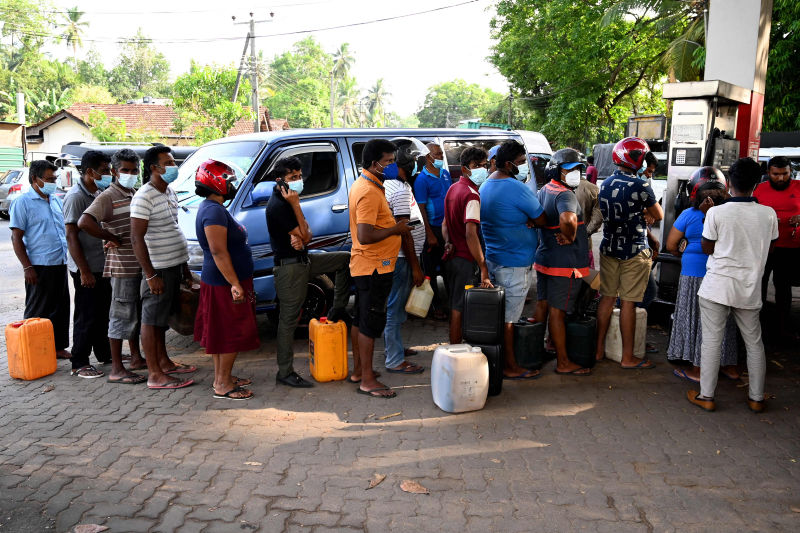Sri Lanka’s stock market is restricting trading to two hours, from the usual four and a half hours, for the rest of the week due to prolonged power cuts in the crisis-hit country, it said in a statement on Thursday.
The Colombo Stock Exchange said the decision to limit trading from 10.30am to 12.30pm local time was taken at the request of stockbrokers.
Sri Lanka’s power regulator has announced 13-hour rolling power cuts on Thursday across most parts of the country due to a shortage of diesel caused by a lack of foreign currency to pay for fuel imports.
The South Asian nation is facing a severe financial crisis. A senior International Monetary Fund (IMF) official visited Sri Lanka earlier this month to brief officials on the fund’s assessment of the crisis-hit economy.
“While the IMF has not received a request for financial support from Sri Lanka, the staff stands ready to discuss options if requested,” the IMF’s Sri Lanka mission chief Masahiro Nozaki said.
Sri Lanka is expected to hold formal talks with the IMF in early April on how to help the country.
In a periodic review release earlier this month, the IMF called on the government to implement a “credible and coherent” strategy to repay debt and restore macroeconomic stability.
Meanwhile, Sri Lankans faced 10-hour power cuts on Wednesday, as a deepening economic crisis roiled markets and the electricity regulator urged more than a million government employees to work from home to save fuel.
Amid the country’s worst economic crisis in decades, foreign exchange reserves have fallen by 70% in the past two years and were down to a paltry $2.31 billion as of February, leaving Sri Lanka struggling to import essentials, including food and fuel.
The drawn-out power cuts on Wednesday were partly caused by the government’s inability to pay $52 million for a 37,000 tonne diesel shipment that was awaiting offloading, Janaka Ratnayake, chairman of the Public Utilities Commission of Sri Lanka, said.
“We have no forex to pay,” he said, warning of more power cuts over the next two days. “That is the reality.”
‘Can’t See End Of Tunnel’
Sri Lankan shares had closed 3.6% lower on Wednesday, after falling more than 7% during the day, prompting the Colombo Stock Exchange to halt trading twice.
Udeeshan Jonas, chief strategist at equity research firm CAL Research, said the market was responding to a deepening of a crisis set off by badly-timed tax cuts, the coronavirus pandemic and historically weak government finances.
“Investors can’t see the end of the tunnel,” he said.
To seek a way out of the crisis, Finance Minister Basil Rajapaksa is set to visit Washington in April for talks with the IMF. The Fund’s assessment published on Friday said Sri Lanka was experiencing a combined balance of payments and sovereign debt crisis, and would need a “comprehensive strategy” to make its debt sustainable.
If Sri Lanka secures an IMF programme it would be its 17th financial rescue package from the global lender.
Harpo Gooneratne, a restaurateur in Sri Lanka’s main city of Colombo, said that even though some of his 10 restaurants had their own generators, the diesel shortage made it difficult to run his business during power cuts.
“It’s crazy,” he said.
The worsening electricity cuts will hit already struggling businesses, especially exporters that have locked in orders and limited capacity to absorb cost increases, said Dhananath Fernando, an analyst at Colombo’s Advocata Institute think tank.
“This will further hurt Sri Lanka’s growth and threaten foreign exchange earnings that are crucial to improve reserves, repay debt and pay for essential imports,” Fernando said.
Gooneratne said there were 30% fewer customers at his restaurants and they were spending less.
“Even when people go out they are cautious about their spending,” he said. “The person who earlier had two beers will now only have one.”
- Reuters with additional editing by Jim Pollard
ALSO READ:
























